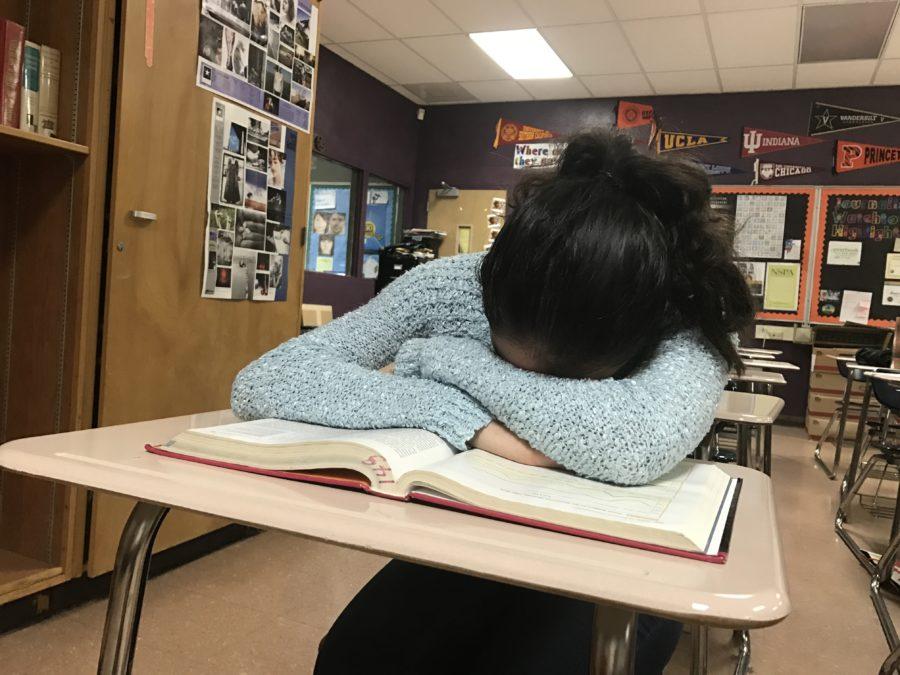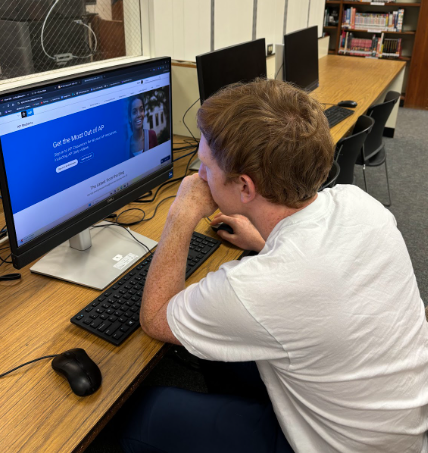Natasha Dardashti staff writer
Lauren Hannani culture editor
Disclaimer: Some names were changed in this article to protect sources and provide anonymity.
Being in control has always been important to Jules. Whether it’s through her rigorous courses or achievement in hobbies, Jules has always been able to manage a workload typical to a high achieving high school student. In freshman year, she was enrolled in five honors courses, played an instrument in the music program and participated in sports, all while still finishing the school year on her toes.
But eventually, the buildup of activities came with a price. During junior year, the anxiety Jules had felt and suppressed in middle school returned, but with a surging intensity this time. She had headaches, stomach aches and began to pick at her skin in response to a gnawing, anxious need to “do something physical” to herself.
“[The feeling] kind of starts in my stomach or my chest, and it’s this expanding thing, and it gets bigger and bigger until it’s a physical thing, and sometimes I’m shaking a lot,” Jules said. “I feel really fidgety and so much is happening in my brain, I just need to do something physical, I guess. So, I take it out on my body.”
More often than not, Jules gets about four hours of sleep a night. But it seems acceptable, and even necessary, for her to sacrifice precious hours of sleep if it means that she will get the grade she needs to pass a test the next day.
“As soon as I get worried about something, it’s really hard for me to just push it out of my head,” Jules said. “It just kind of plays over and over again in my head in this continuous cycle and then I just keep dwelling on it until it just becomes too much to bear.”
However, Jules isn’t alone in feeling this kind of anxiety. According to a study by the National Institute of Mental Health (NIMH), approximately 25.1 percent of teenagers ages 13-18 experience some form of an anxiety disorder. Many experts even claim that these statistics fall on the lower end of true effects, because most teenagers do not seek help.
 Familial expectations, especially when regarding college, can have a common anxiety inducing effect on students. Many expectations, for example, come from a family with a sibling or a parent who graduated and attended a prestigious university.
Familial expectations, especially when regarding college, can have a common anxiety inducing effect on students. Many expectations, for example, come from a family with a sibling or a parent who graduated and attended a prestigious university.
“When you have siblings who ended up at really good schools, you can’t help but compare yourself,” senior Maya Luong, who has a sister at UC Berkeley, said.
Attending a prestigious university has always been very important to Jules as well, partially due to the fear of others judging her for not reflecting the typical successful student in our minds.
“It’s kind of ingrained in our idea of what a successful person is…I’ve always thought that if I didn’t go to a good college, my family would look down on me, kind of,” Jules said. “In the past, I’ve thought if [students] go to some school that I don’t think is good enough, I’m like, ‘Oh, they just go to that school. They’re not that smart, or whatever.’ I don’t do that anymore, but I imagine people doing that to me.”
Immigrant students also feel familial pressures because of what their parents have sacrificed for their education. Luong immigrated from Vietnam to America only a few years ago, so she feels an obligation to fulfill the life her parents dreamed for her in the “Land of Opportunity.”
“A lot of immigrant kids have a story about how their parents sacrificed a lot for them to have the kind of education you can get here in the United States, so I feel like I need to take responsibility for my education and take advantage of it,” Luong said. “I’ve just had a much better opportunity [than people in my native country], and so I have to take advantage of that.”
But for some students, the reason for stress and anxiety in school is simply the thought of needing to make up a huge stack of work when they’ve missed class due to absences.
 “If I miss school, I’m off throughout the entire day,” sophomore Alex Weiss said. “I know that there’ll be so many things I have to do…and then I have to go to the teacher, and feel confused about all the work I missed.”
“If I miss school, I’m off throughout the entire day,” sophomore Alex Weiss said. “I know that there’ll be so many things I have to do…and then I have to go to the teacher, and feel confused about all the work I missed.”
The only time Weiss missed a day of school was for the theater previews. When she starts feeling anxious about missing work, the stress does not vanish after a few minutes or hours; it usually lasts for a couple of days.
“It’s usually long-term, just depending on what’s going on,” Weiss said. “It starts with me overthinking, and then I get really stressed out, and then really nervous about anything that happens afterward.”
In Jules’s experience, the feeling of anxiety is not one to stop in an instant or lessen with the use of medication. In her words, it cannot simply “shut down,” like some people might think.
“My parents, I know they try to not do this, but if I’m really having a panic attack or something, they start yelling at me and say, ‘Stop it! Why are you doing that? The neighbors are going to hear you.’ You can’t really stop it, though,” Jules said. “It’s not something you can just be like, ‘Oh, I’ll take a pill and I’ll feel better.’ It doesn’t work.”
Although this kind of anxiety is a very common feeling experienced by many students, not all teenagers feel stressed during school.
“I’ve always been stress-free when it comes to school,” junior Seraphim Hartstein said. “I never placed school on such a high priority that I would stress about it. My parents also never pressured me to do well, and they always trusted me to produce results that would satisfy me.”
In fact, Hartstein is confident that being stress-free is the key to happiness in life.
“Stress can sometimes remind ourselves to put in more effort and take things seriously, but it doesn’t enhance our performance in any way,” he said. “It only hinders our brains. I believe that if you don’t let stress control your life, you can succeed in anything you do.”
For Jules, a shift in perspective was needed to help alleviate some of the stressors that came with everyday life and schoolwork. Eventually, she realized that going to an Ivy League was not the best choice for her, both personally and academically. Now in her senior year, Jules was accepted to the college of her dreams, and feels “happier with her life” after better learning to manage her anxiety.
“High school and my application process felt chaotic, unpredictable and often uncontrollable. But I’m okay with that now,” Jules said. “I don’t like math, but I used to expect my life to be mathematical–like, the right amount of work added to the right amount of time and intelligence would get me the grades I wanted, the college I wanted, the life I wanted. Now I know that’s not how it works. Life doesn’t always add up, but I think that’s what makes it worth living.”
Coping with anxiety: students share their experiences
December 20, 2017
0
Donate to Highlights
$125
$1000
Contributed
Our Goal
Your donation will support the student journalists of Beverly Hills High School. Your contribution will allow us to purchase equipment and cover our annual website hosting costs.
More to Discover



































